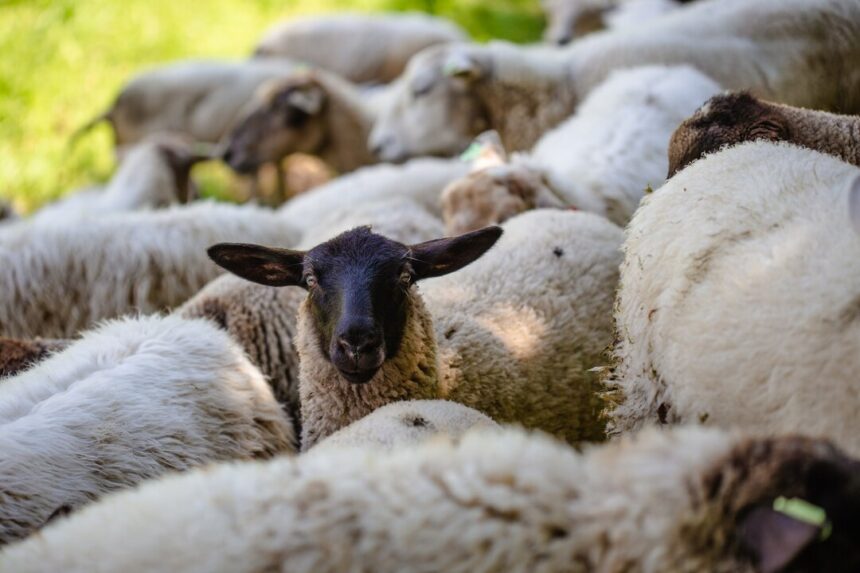Suffolk sheep, renowned for their hardiness, prolificacy, and superior meat quality, have become a popular choice for farmers in South Africa seeking to enhance their livestock operations. Originally bred in England, Suffolk sheep have adapted well to South African climates and terrain, making them an ideal choice for both commercial and small-scale farming ventures. Here are ten essential things you should know about breeding and farming Suffolk sheep in South Africa:
1. Heritage and Origin:
Suffolk sheep trace their origins back to the county of Suffolk in England, where they were first developed in the early 19th century by crossing Southdown rams with Norfolk Horned ewes. Known for their distinctive black faces and legs, Suffolk sheep quickly gained popularity for their superior meat production qualities.
2. Meat Production:
One of the primary reasons for the popularity of Suffolk sheep in South Africa is their exceptional meat production capabilities. Suffolk lambs are known for their fast growth rates, efficient feed conversion, and high-quality carcasses, making them a lucrative choice for meat production ventures.
3. Adaptability to South African Conditions:
Suffolk sheep have demonstrated excellent adaptability to South African climates and terrain, thriving in a wide range of environmental conditions. Whether in the cold, high-altitude regions of the Western Cape or the hot, arid landscapes of the Karoo, Suffolk sheep have proven to be resilient and hardy.
4. Reproductive Efficiency:
Suffolk sheep are renowned for their reproductive efficiency, with ewes typically exhibiting high fertility rates and multiple births. This reproductive prowess translates into increased lambing percentages and enhanced profitability for farmers breeding Suffolk sheep.
5. Growth Rates:
Suffolk lambs are known for their rapid growth rates, reaching market weight at an early age compared to other sheep breeds. This fast growth allows farmers to achieve higher turnover rates and maximize their returns on investment in Suffolk sheep breeding programs.
6. Grazing and Foraging Behavior:
Suffolk sheep are proficient grazers and foragers, efficiently utilizing pasture and forage resources to meet their nutritional needs. Their grazing behavior makes them well-suited to extensive farming systems, where they can thrive on natural vegetation and minimize reliance on supplementary feed.
7. Wool Characteristics:
While Suffolk sheep are primarily valued for their meat production qualities, they also produce a medium-grade wool with good spinning and felting properties. Although not as fine or dense as wool from some other breeds, Suffolk wool is still suitable for a variety of textile applications.
8. Disease Resistance:
Suffolk sheep exhibit robust health and disease resistance, with a lower susceptibility to common ailments and parasites compared to some other sheep breeds. Their hardy constitution reduces the need for intensive veterinary intervention and contributes to lower production costs for farmers.
9. Breeding Programs:
Effective breeding programs play a crucial role in maximizing the genetic potential of Suffolk sheep for meat production and other desirable traits. Selective breeding, performance testing, and genetic selection techniques are commonly employed to improve flock productivity and quality over successive generations.
10. Market Demand:
There is a strong demand for Suffolk sheep in the South African market, driven by the breed’s reputation for superior meat quality and high growth rates. Farmers breeding Suffolk sheep stand to benefit from lucrative opportunities in the lamb meat sector, both domestically and internationally.
By understanding the unique characteristics and advantages of Suffolk sheep, farmers in South Africa can harness the breed’s potential to enhance their livestock operations and achieve greater profitability. With their adaptability, productivity, and market appeal, Suffolk sheep continue to be a valuable asset for the country’s agricultural sector.
Join 'Farmers Mag' WhatsApp Channel
Get the latest Farming news and tips delivered straight to your WhatsApp
CLICK HERE TO JOIN






